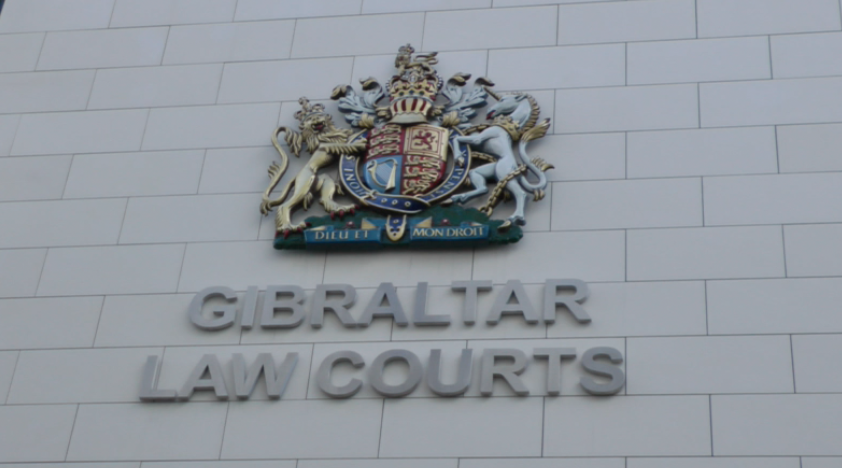Jul 18 - Catholic Mother Stopped By Court From Baptising Child After Atheist Father Objects
 A Roman Catholic mother has been prevented by the Supreme Court from baptising her child after the child’s atheist father objected.
A Roman Catholic mother has been prevented by the Supreme Court from baptising her child after the child’s atheist father objected.
The background to the case involves a child, referred to simply as “C”, who was born to unmarried parents in 2012 in Gibraltar.
However, the relationship broke down and the child’s parents separated in 2015.
The child’s father held views which directly conflicted with those of his former partner.
Pusine Judge Christopher Butler, in his judgement, described the father’s views on religion as “clear”.
“He is vehemently anti-religious and believes that religion has been responsible for a great deal of harm,” he said.
C’s mother, however, was a Roman Catholic, someone to whom “religion is of significant importance.”
The matter first came to the court’s notice on the 22nd April because the mother had, “without notice to the father or consultation with him,” arranged for C to be baptised.
She had sought seek legal advice because she was “worried about whether her actions were proper and legal.”
The father’s anti-religious views led him to oppose her plan and to apply for a Prohibited Steps Order, which the judge granted on an interim basis.
The father’s central position was that his child “should not have his choice made for him before he is of an age at which he can decide for himself which, if any, religion he wishes to adopt and follow.”
Although the father recognised that C would be influenced by his maternal family’s beliefs and traditions, he insisted that “baptism and thereby formal entry into a particular faith should not be undertaken without C’s informed consent and wish at an age at which he can properly understand what is happening.”
Significantly, although the father objected to the baptism, he made no request to restrict any other type of religious influence on C’s life.
The mother’s argument, on the other hand, was that C be baptised “because that accords with the strongly held beliefs of her family, including herself.”
Furthermore, it was highlighted that C attended a state Christian school and would be attending another state Christian school soon.
By blocking her child’s baptism, the mother felt that C would “feel excluded from the traditions and different from his half siblings, other members of her family, school friends and school traditions if he is not baptised.”
Puisne Judge Christopher Butler’s decision was that he did not believe that C was “likely to suffer any serious harm whether he is baptised at this stage or not.”
The judge concluded that it was nevertheless an important matter which would have repercussions for the child’s worldview: “It may be thought that baptism would in these circumstances make little difference. I do not agree. It would amount to entire acceptance of the mother’s beliefs to the exclusion of the father’s, or at least it would so seem to him. I think that he would therefore resent the baptism. He has the legitimate view that, whilst he would not stand in the way of C’s involvement and participation in the Christianity practised by the mother and her family, C should not feel, when he comes to make his decisions, that they have already been made for him. He will be less open to alternatives, including his father’s opinions. He might feel that having been baptised he would be rejecting the faith chosen for him rather than simply choosing not to follow his maternal family’s lead.”
Mr Justice Butler emphasised that this conclusion “should not be regarded as applicable in all cases or even as a starting point,” adding that “there will be kaleidoscopic considerations in every case.”
The judge’s analysis concluded: “The right of the child to be free as he develops to make his own choices is subject to the right and duty of those with parental responsibility to make choices for him until he can choose for himself. Where there is a conflict between the views of separated parents or others with parental responsibility, the Court must act as impartial judicial reasonable parent. My view in this case is that the child will be happier knowing that the views of neither parent have prevailed over him and that the parents are tolerant of each other until he can make his own decision.”
Mr Justice Butler ordered that the mother be prohibited from causing or allowing C to be baptised without the written consent of the father or further order of the Court.
The mother was represented by Jeevan Daswani, the father by Claire Pizarello.
The full judgement E v B; RE C (PROHIBITED STEPS ORDER; BAPTISM OF CHILD) can be read here: http://www.gcs.gov.gi/images/judgments/supremecourt/2016/e_v_b_prohibited_steps_order_baptism_of_child.pdf
{fcomment}
Latest News
- Local Actors Travel To UK Drama Festival
- Bridge House Charitable Trust Welcomes Donations
- GSD Says Principal Auditor Report 2018/19 Should Now Emerge
- The Budget 2025 – Minister Gemma Arias-Vasquez's Address
- Ministry Of Equality Marks Successful End Of The Sixth Cycle Of The Women’s Mentorship Programme
- Man Sentenced To Time Served For Assault In February Incident
- Ministry Of Transport Announces Availability Of Delivery Driver Cards
- GSD Accuses Government Of Delaying 2018/19 Principal Auditor’s Report
- The Budget 2025 – Minister Nigel Feetham's Address
- Chamber Responds to the 2025 Budget



